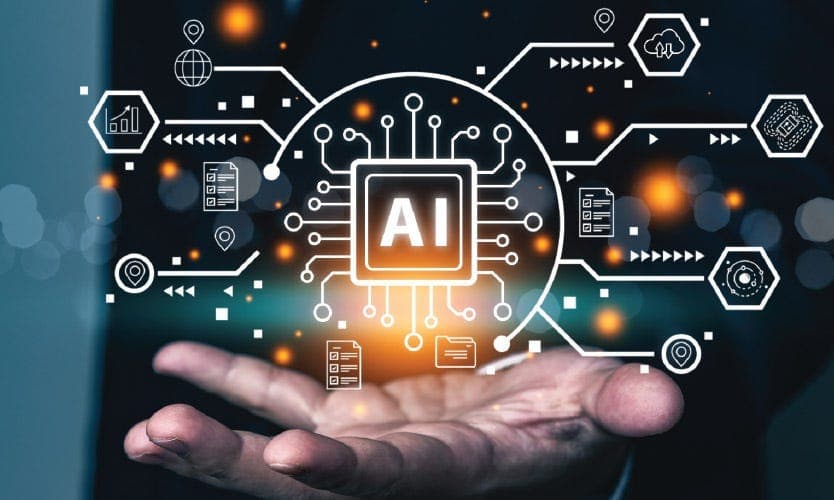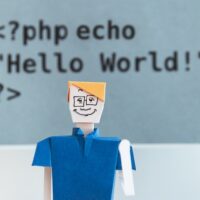
Artificial intelligence is no longer a fantasy of futurists — today it has become an integral part of modern programming and digital solution development. From automated testing to code generation and intelligent data analysis, AI penetrates every phase of a software product’s lifecycle. Developers, companies, and even governments — including the Czech Republic — are increasingly investing in AI as a tool that can significantly accelerate processes and improve product quality.
How AI Is Changing the Programming Approach
The role of artificial intelligence in development goes far beyond theoretical models. It’s not just about machine learning — it’s about the practical implementation of algorithms that help automate routine tasks. For example, tools like GitHub Copilot already allow developers to reduce the time spent on coding by offering ready-made solutions based on contextual analysis.
But this isn’t the only area where AI excels. It also contributes to:
Predicting errors before they appear in production;
Optimizing application architecture;
Improving code security;
Adaptive UI/UX design;
Creating personalized digital solutions.
Thus, AI becomes not just an assistant but a full-fledged member of the development team, influencing the strategy and approach to building digital products.
Czechia and AI Development: Local Context
The Czech Republic is making confident strides toward digital transformation. Local startups and universities (such as the Czech Technical University in Prague) are actively working in the field of artificial intelligence. The government supports AI development through the National Artificial Intelligence Strategy, aimed at integrating technologies into key sectors: healthcare, transportation, industry, and education.
For Czech developers, AI has become a means not only of increasing productivity but also of competing on the international level. Many companies use machine learning-based solutions to reduce costs and quickly adapt to changing market conditions. In practice, AI becomes a tool of digital sovereignty.
From Automation to Autonomy
One of the most prominent trends in recent years is the shift from process automation to autonomous systems. If in the past AI helped analyze data and generate recommendations, today it is capable of making decisions independently. This gives rise to automatic DevOps scenarios, predictive analytics for infrastructure management, and systems that can scale themselves based on load.
A scenario where a server configures itself based on previous experience and current user behavior no longer seems like science fiction. These capabilities significantly reduce human error, increasing system reliability and resilience.
New Tools in the Developer’s Hands
AI-based software environments and frameworks are being updated almost every month. TensorFlow, PyTorch, and Scikit-learn are far from the only tools in the arsenal of modern professionals. Specialized libraries are emerging for code generation, testing, monitoring, and neural network architecture visualization.
Interestingly, some AI solutions are now used in the software design process itself — for example, neural networks that help determine which features users need first. This allows companies to operate under a “user-first” model on an entirely new level.
Ethical Challenges and Risks
However, the rise of artificial intelligence also brings many questions. One of them is ethical. Automatic code generation may lead to copyright issues. Moreover, AI models sometimes generate insecure or vulnerable code fragments, which increases the risk of exploitation. Therefore, developers must not only use AI tools but also think critically, verify, and test every output the machine produces.
Algorithm transparency is also becoming essential: how exactly did the system make a decision, and can it be repeated or explained? For Czech companies, especially those operating in regulated sectors, this is of particular importance.
The Future: Human-Machine Symbiosis
Perhaps the most important realization is that artificial intelligence does not replace the developer. It complements them. Human creativity, intuition, and the ability to make decisions in non-standard situations remain beyond the reach of algorithms. However, it is in the symbiosis of humans and AI that what is called “smart development” emerges.
Companies that can skillfully integrate AI into their processes will gain a significant competitive advantage. And developers who master AI tools won’t just be writing code — they will become architects of a new digital world.
Conclusion
Artificial intelligence in development is no longer experimental or exclusive. It is a real, working tool that affects the entire lifecycle of digital solutions. In Czechia, it is gaining more and more ground — from academia to business. And in the coming years, we will see Czech developers use AI to create not just functional applications, but intelligent ecosystems capable of adapting, evolving, and working in the best interests of the user.



